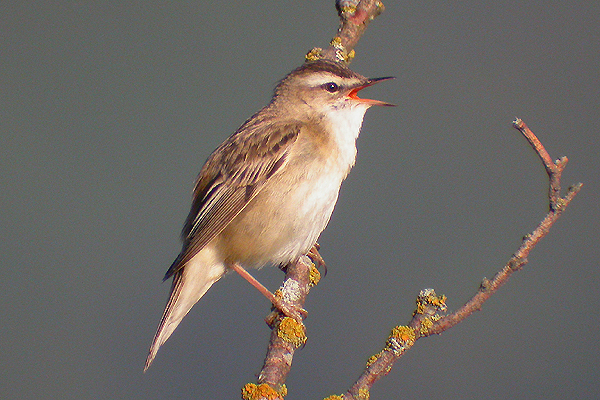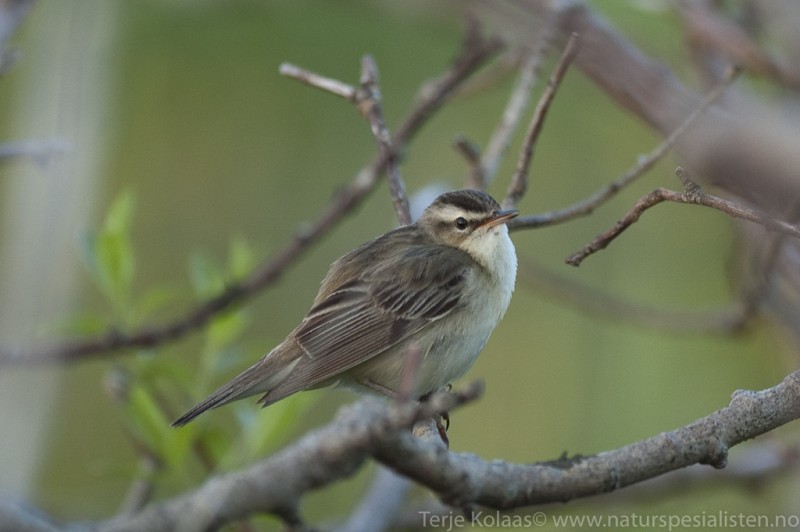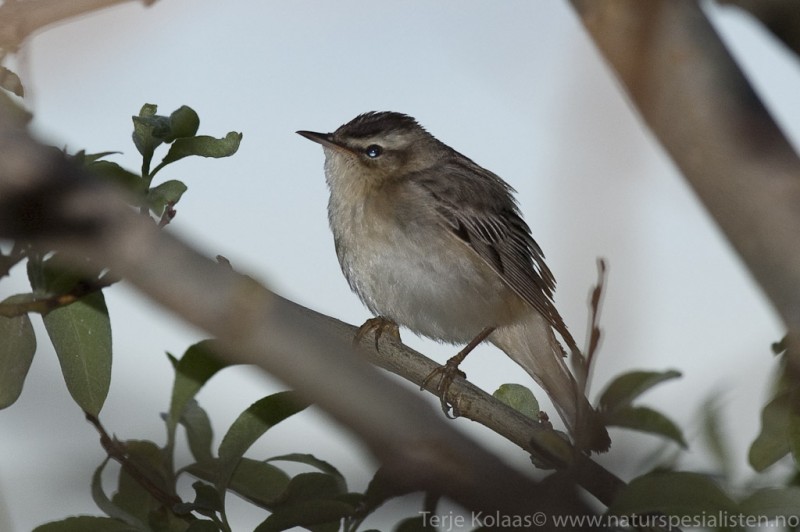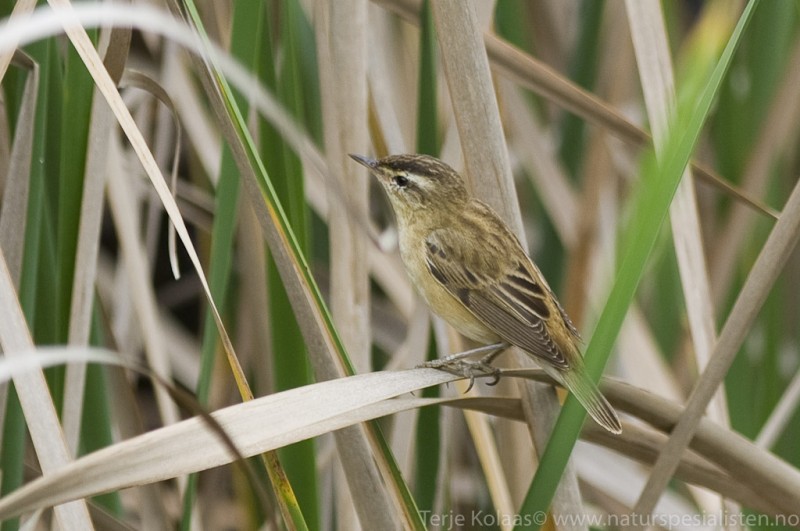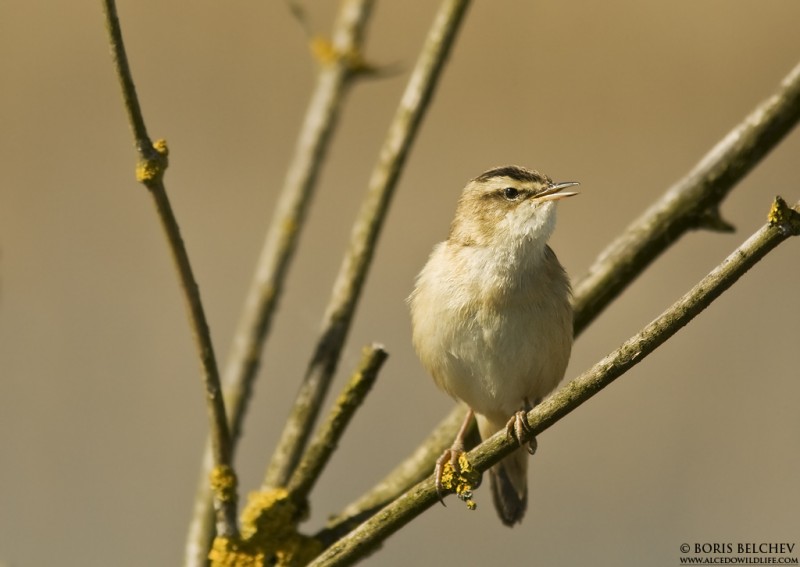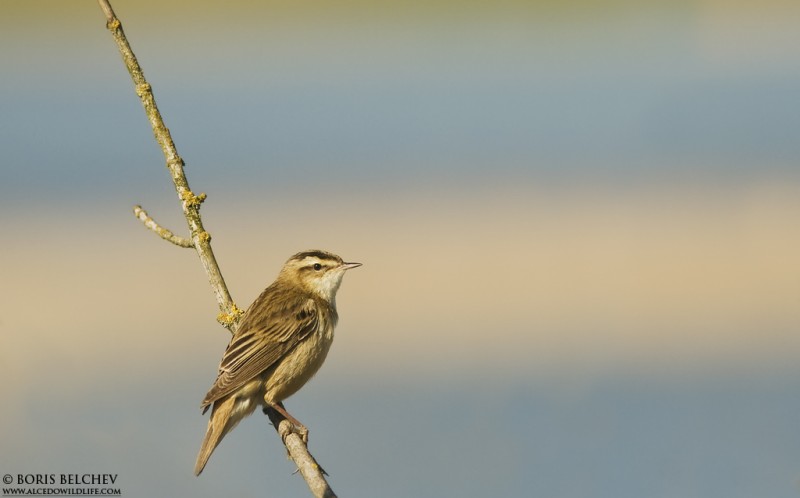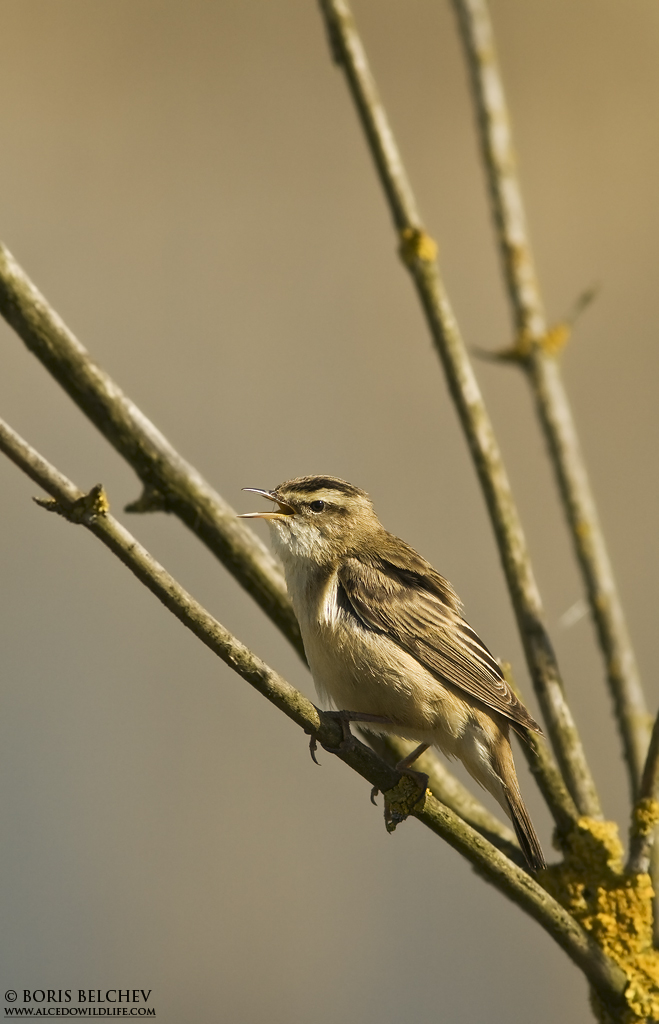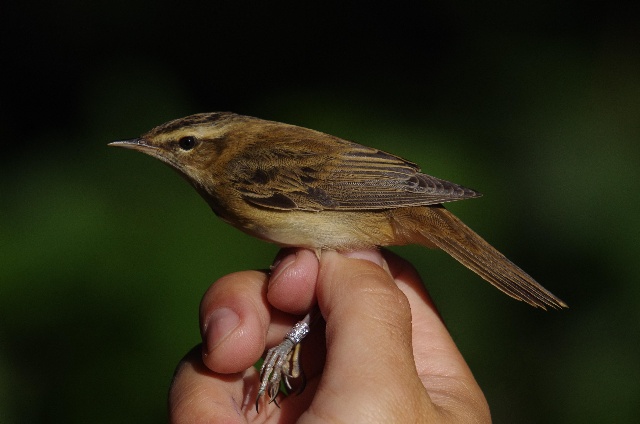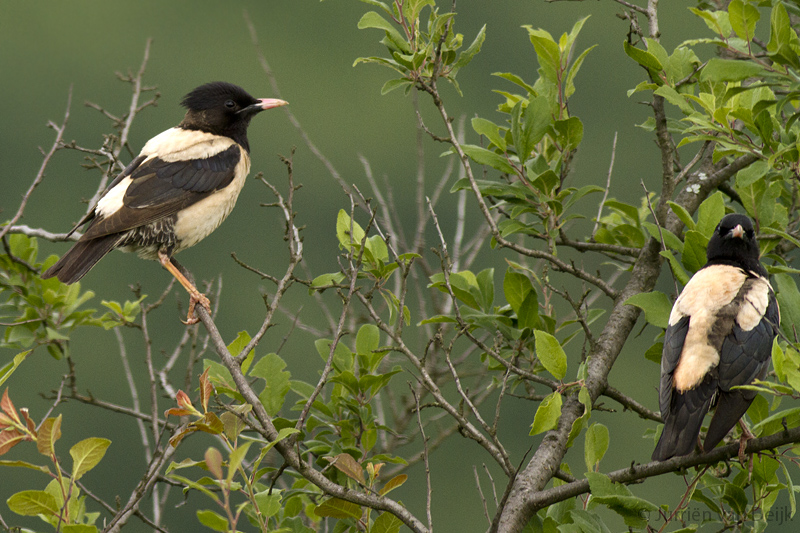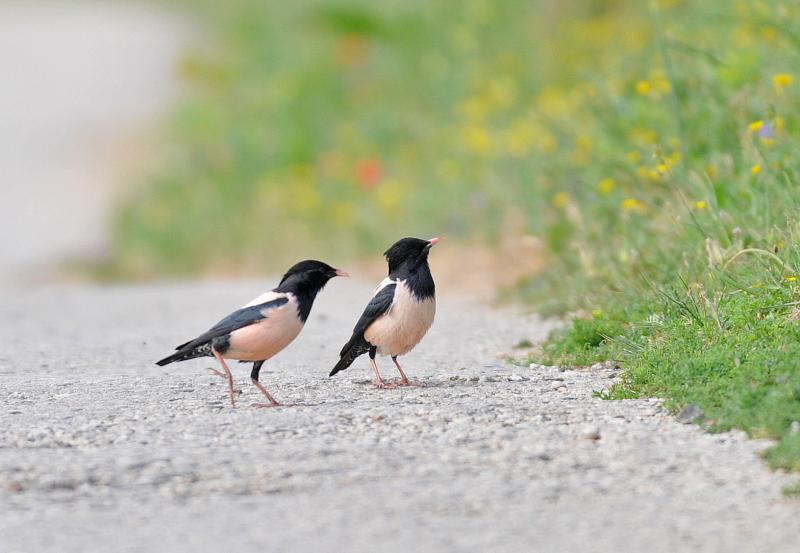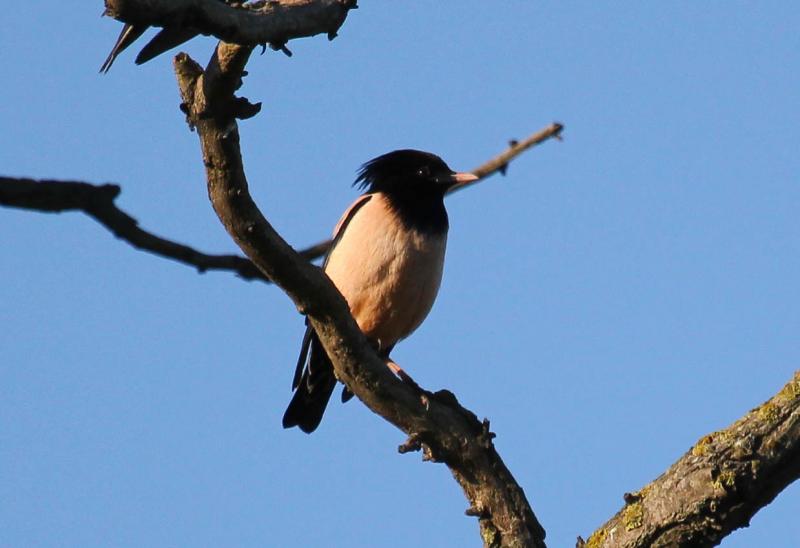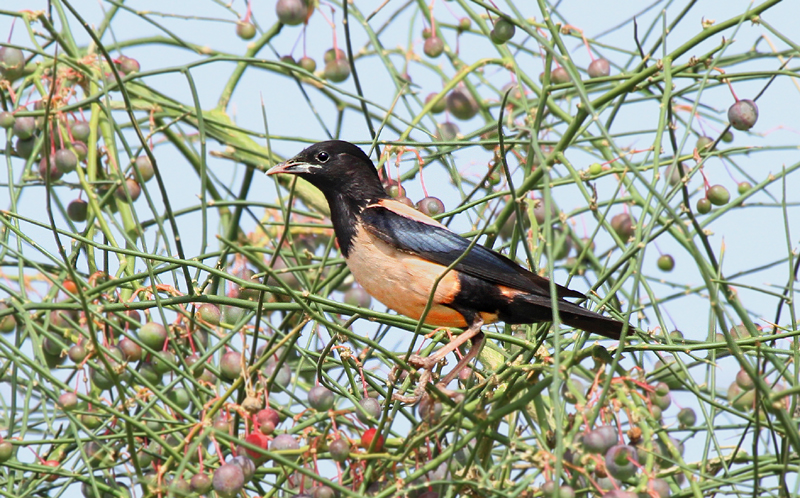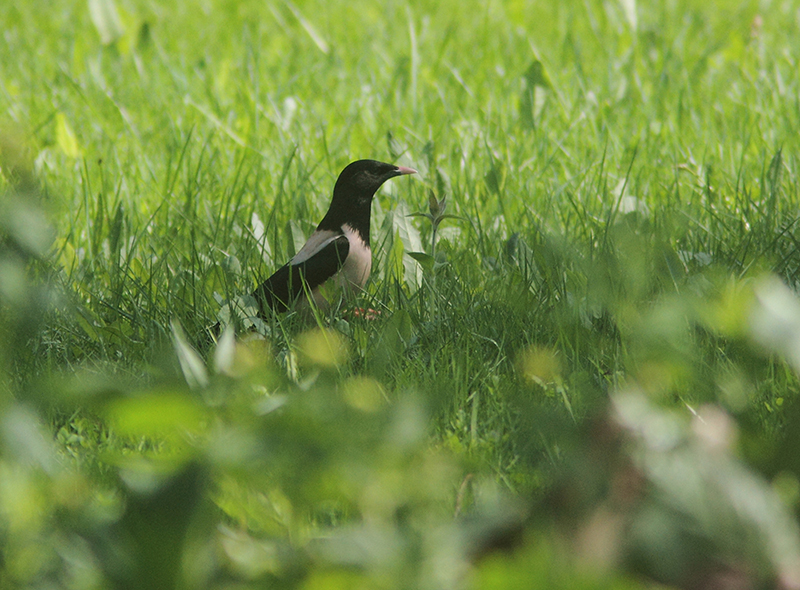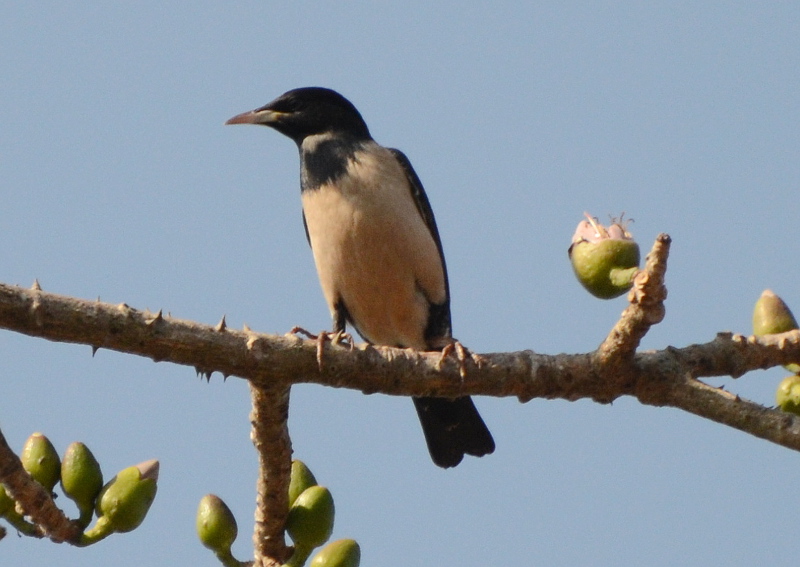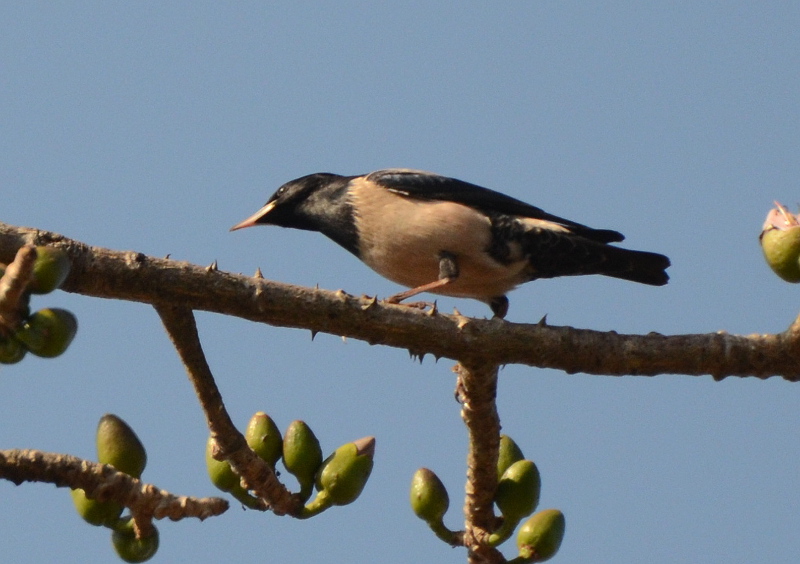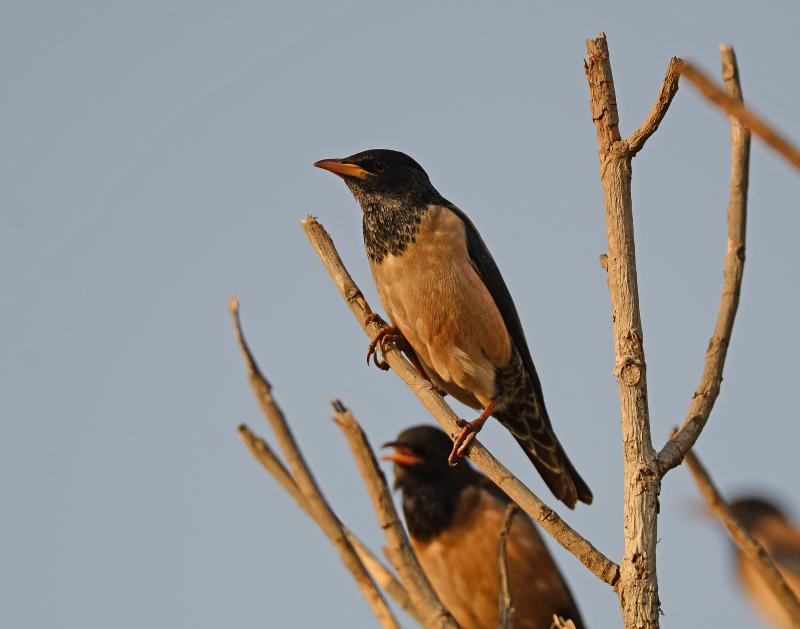Sedge Warbler (Acrocephalus schoenobaenus)
Rosy Starling (Pastor roseus)
Small and compact, brown warbler with strong supercilium and streaked back. Crown dark with faint streaking, contrasting with broad supercilium. Rump unstreaked and warmer brown than back and tail. Juveniles with faintly streaked chest. Long primary projection. Body shorter and more compact than Reed Warbler. Easiest Achrocephalus to see in the region. Often sings from exposed branch or reed, is inquisitive and not very shy.
Sound:Alarm call a hard "check". Anxiety call a dry and rolling "rrrrr". Song vigorous and varied. A mixture of musical sounds, expert mimicry and characteristic harsh and strident calls. Not as rhythmic and evenly paced as Reed Warbler, but varies tempo a lot.
Song:
Distribution:
Xeno-canto: map
Ecology:Birdlife ecology
Links:
Observation.org Latest observations
Image search Flickr NB! May give other species
CCAdults at close range unmistakable with their striking pink and shiny black plumage and crest. In flight note the pale back in contrast to the black head and wings. Head profile quite different from Starling. Bill considerably shorter and slightly down-curved. Forehead flatter and head more rounded when crest is not erect. Immature birds more anonymous, with brownish upperparts, pale belly and darker brown wings with pale fringed coverts and flight feathers. Bill yellowish with darker tip and legs flesh coloured. Very gregarious and immature vagrants usually seeks company with European Starling. Then easily spotted as a much paler bird. Especially the rump stands out in flight. European Starling sometimes show pale plumage but can then be identified by bill shape. Forages with less rapid head movements than ES.
Sound:Starling-like timbre, higher pitched and not so harsh as E. Starling. At the same time less musical with few pure notes. Song consist mostly of short and sharp "veet" and various thin, noisy whistles, delivered in accelerating bursts reminiscent of Barn Swallow or E. Starling. Often perceived more like a constant din from roosting flocks.
Song:
Distribution:
Xeno-canto: map
Ecology:Birdlife ecology
Links:
Observation.org Latest observations
Image search Flickr NB! May give other species
CC
 English
English Albanian
Albanian
 Armenian
Armenian
 Bulgarian
Bulgarian
 Catalan
Catalan
 Croatian
Croatian
 Czech
Czech
 Danish
Danish
 Dutch
Dutch
 Finnish
Finnish
 French
French
 Georgian
Georgian
 German
German
 Greek
Greek
 Hungarian
Hungarian
 Italian
Italian
 Latvian
Latvian
 Lithuanian
Lithuanian
 Macedonian
Macedonian
 Norwegian
Norwegian
 Polish
Polish
 Portuguese
Portuguese
 Romanian
Romanian
 Russian
Russian
 Sami : Lule sami
Sami : Lule sami
 Sami : North sami
Sami : North sami
 Sami : South sami
Sami : South sami
 Scientific names
Scientific names
 Serbian
Serbian
 Spanish
Spanish
 Swedish
Swedish
 Ukrainian
Ukrainian


